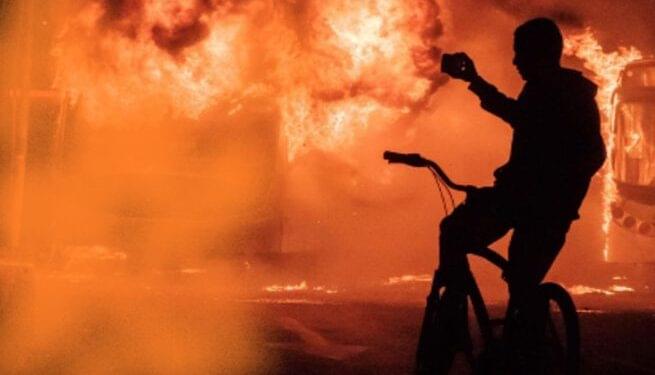Glen View Home Industry complex, known for its resilience, is once again rising from the ashes after a recent devastating fire. Despite the charred rubble that still litters the ground, the men and women who work in the complex have already begun the process of rebuilding.
Makeshift stalls, constructed from salvaged wooden poles and iron sheets, have been erected. Sewing machines, although blackened by the fire, have been repaired and are now humming softly as carpenters stitch together materials to cover the sofas being assembled nearby.
For those who have not yet restored their stalls, they continue to work in the open area that once housed their creations. Although their morale is low, they understand that life must go on.
“I cannot afford to sit at home and mourn what I lost, but I have to come back to work so that I can provide for my family. All of us here need to work together to replace what we have lost,” said Billiard Makatare, threading his revived sewing machine.
“I managed to clean and repair this machine and set it up on a new wooden table so I can start working again. It may not be functioning perfectly, but it will do until I find an alternative solution.”Unfortunately, fires breaking out at the Glen View complex have become a recurring occurrence, happening almost every year around September and October. The cause of these fires remains a mystery, with various theories circulating among the workers. Some speculate that the fires could be accidental, sparked by someone clearing land nearby. Others believe the fires may be a result of rivalry between workers or an attempt to cover up theft.
There are even wild theories suggesting supernatural forces at play, such as vengeful spirits or the influence of “juju” sought by those working in the complex to boost their business and attract customers.
“We’ve heard all these theories, but they remain mere speculation. We have never been able to explain how these fires start. Most of the time, they break out in the middle of the night, and we wake up to nothing but ashes. Pinpointing the cause is difficult. I must admit, though, the speed at which the fires spread is not normal,” said Mr. Samuel Gwenzi, one of the affected workers.
Having experienced multiple fire incidents, Samuel has learned to set aside money as a contingency plan for recovery. He sometimes invests in cattle or other assets that can be easily sold in case of emergencies.
However, not everyone has been as fortunate as Samuel. Caleb Muchingami, for instance, has managed to restore his shed but lacks the capital to restart his work. He remains hopeful for a miracle.
The situation is further complicated by middlemen who exploit the workers in the complex. The middlemen interfere with transactions, inflating prices and taking a significant portion of the profits. Many workers feel powerless to confront these middlemen, fearing reprisals.
Over the years, the Harare City Council has made promises to address the issues plaguing the Glen View Home Industry, but little action has been taken. Urgent measures are needed to restore order in the overcrowded complex and prevent future fires. The workers emphasize the necessity of proper structures, access roads, and waste management to mitigate fire risks.
The national chairman of Small and Medium Enterprises for Economic Development, Mr. Lloyd Bhaera, agrees that significant improvements are required to support the informal traders in the home industry. He suggests decentralizing the complex and creating similar setups in other areas to alleviate overcrowding. This would also enable transparent payment of council rates for better services.
Mr. Bhaera emphasizes the importance of registering the workers, enabling them to formalize their businesses and obtain insurance coverage. He also proposes that those stocking flammable materials have separate sheds outside the complex to comply with safety regulations.
The workers of Glen View complex simply desire an opportunity to earn a decent living for their families. Despite the challenges they face, they remain hopeful that their circumstances will improve, allowing them to build better lives for their children.
Source MyZimbabwe









